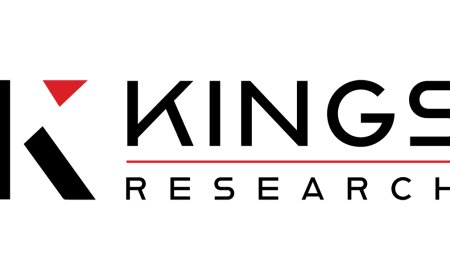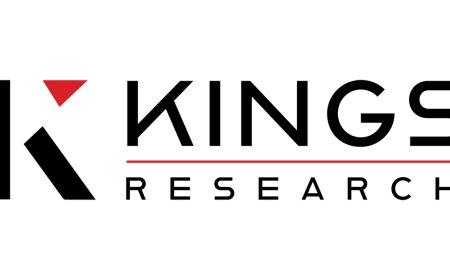How to Attend the Cannes Film Festival as a Tourist
How to Attend the Cannes Film Festival as a Tourist The Cannes Film Festival, held annually in the glamorous French Riviera, is more than just a cinematic event—it’s a global cultural phenomenon. While often associated with red carpets, A-list celebrities, and industry insiders, the festival is also an extraordinary opportunity for tourists to experience the magic of cinema in one of the world’s m
How to Attend the Cannes Film Festival as a Tourist
The Cannes Film Festival, held annually in the glamorous French Riviera, is more than just a cinematic event—it’s a global cultural phenomenon. While often associated with red carpets, A-list celebrities, and industry insiders, the festival is also an extraordinary opportunity for tourists to experience the magic of cinema in one of the world’s most iconic settings. Unlike many film festivals that operate as closed industry events, Cannes welcomes the public in meaningful, accessible ways. Whether you’re a film enthusiast, a culture seeker, or simply drawn to the allure of the Mediterranean coast, attending the Cannes Film Festival as a tourist is not only possible—it’s deeply rewarding.
Understanding how to navigate the festival as a non-industry attendee requires more than just booking a flight and hotel. It demands strategic planning, cultural awareness, and an appreciation for the festival’s unique structure. This guide will walk you through every phase of the experience—from securing tickets and navigating the Croisette to enjoying off-screen events and avoiding common pitfalls. By the end of this tutorial, you’ll have a comprehensive, actionable roadmap to make your Cannes Film Festival visit unforgettable.
Step-by-Step Guide
1. Understand the Festival Structure and Timeline
The Cannes Film Festival typically runs for 12 days in mid-May, culminating in the prestigious Palme d’Or award ceremony. The event is divided into several zones of access: the official festival area (centered around the Palais des Festivals), the public beachfront promenade known as the Croisette, and the surrounding neighborhoods of La Bocca, Le Suquet, and Le Mourillon.
Key dates to note:
- Announcement of the Official Selection: Late April
- Festival Opening Day: Second Wednesday of May
- Midpoint (Jury Screening Day): Around Day 6
- Closing Ceremony and Awards: Second Sunday of May
As a tourist, your primary access will be to public screenings, outdoor events, and the festival atmosphere—not the exclusive industry screenings. However, understanding the timeline helps you plan around peak crowds, press days, and when the most anticipated films are screened.
2. Book Accommodations Early
Accommodation in Cannes fills up rapidly—often 6 to 12 months in advance. Hotels along the Croisette can cost upwards of €1,000 per night during the festival. To balance cost and convenience, consider these options:
- Stay in Cannes proper: Book a boutique hotel or apartment in the historic Le Suquet district. It’s a 15-minute walk to the Palais and offers authentic Provençal charm.
- Stay in nearby towns: Antibes, Juan-les-Pins, and Grasse offer excellent public transport links (train or bus) and lower rates. Trains from Antibes to Cannes take just 10 minutes.
- Consider alternative lodging: Airbnb, vacation rentals, and even hostels in the city center can be viable if booked early. Look for properties with kitchen access to save on meals.
Pro tip: Avoid booking through third-party sites that don’t allow direct communication with hosts. Use platforms like Booking.com or Airbnb with verified reviews and flexible cancellation policies.
3. Secure Public Tickets and Screenings
Unlike industry screenings, which require accreditation, the festival offers public screenings called “Séances Publiques.” These are open to anyone with a ticket and are held in the Palais des Festivals, as well as outdoor venues like the Plage de la Croisette.
To obtain tickets:
- Visit the official Cannes Film Festival website: www.festival-cannes.com
- Register for a free account using your email and passport details.
- During the ticket sale window (typically 3–4 weeks before the festival), log in and select your preferred screenings.
- Purchase tickets using a credit card. Each person is limited to 2 tickets per screening.
Popular films sell out within minutes. Set a reminder for the exact time tickets go on sale (usually 10:00 AM Central European Time). Have your payment method ready and use a desktop browser for faster loading.
Not all screenings are created equal. Look for:
- Competition Films: Screenings in the Palais are the most sought-after. These are the films competing for the Palme d’Or.
- Un Certain Regard: A parallel section showcasing innovative and daring cinema.
- Out of Competition: High-profile films that aren’t competing but still draw large crowds.
- Midnight Screenings: Often cult favorites or genre films with lively audiences.
Outdoor screenings on the beach are free and open to the public on a first-come, first-served basis. Arrive 1–2 hours early to secure a spot on the sand with a blanket or towel.
4. Plan Your Daily Itinerary Around Screenings and Events
Don’t try to see everything. Focus on 2–3 key screenings per day and allow time for exploration. A sample itinerary:
- 9:00 AM: Breakfast at a local café in Le Suquet (try the local tartine with anchovies and olive oil).
- 10:30 AM: Walk the Croisette. Observe the buzz, take photos, and admire the luxury boutiques.
- 1:00 PM: Attend a public screening at the Palais. Bring water and a light jacket—air conditioning is intense.
- 4:00 PM: Visit the Marché du Film (Film Market), which is open to the public on certain days. Explore indie film booths and pick up festival programs.
- 7:00 PM: Dinner at a local bistro like Le Bistrot du Port or La Palme d’Or.
- 9:30 PM: Attend a free outdoor screening on the beach.
Use the official festival app (available on iOS and Android) to track screening times, locations, and last-minute changes.
5. Navigate Transportation and Parking
Cannes is compact and pedestrian-friendly, but getting around efficiently matters. Here’s how:
- Walking: The Palais des Festivals to Le Suquet is a 15-minute stroll along scenic paths.
- Public Transit: The Lignes d’Azur bus network runs frequent routes. Purchase a 1-day pass (€4.50) or 7-day pass (€15) from kiosks or via the app.
- Trains: If staying in Antibes or Nice, the TER train connects every 15–20 minutes. Buy tickets via SNCF Connect app.
- Taxis and Ride-Sharing: Uber and Bolt operate in Cannes. Avoid taxis near the Palais during peak hours—they often overcharge tourists.
- Car Rentals: Not recommended. Parking is scarce and expensive. Most hotels charge €40+ per night for parking.
Plan your route using Google Maps or Citymapper, which includes real-time transit updates.
6. Experience the Festival Beyond the Screen
The Cannes Film Festival is as much about ambiance as it is about movies. Don’t miss these public experiences:
- Photocall Zones: While you can’t get close to stars during official arrivals, the red carpet area is open for photos during non-screening hours. Arrive early and be respectful.
- Exhibitions: The Palais hosts free exhibitions on film history, costumes, and technology. Check the schedule online.
- Street Performances: During the day, musicians, artists, and performers populate the Croisette and Place du Marché.
- Beach Culture: The public beaches are as much a part of the festival as the Palais. Rent a sunbed, read a film magazine, or simply people-watch.
- Local Markets: The Marché Forville (open daily except Monday) offers fresh produce, cheeses, and Provençal specialties.
7. Prepare for the Weather and Dress Code
Cannes in May is typically sunny with temperatures between 16°C and 24°C. Pack accordingly:
- Daytime: Light clothing, sunglasses, sunscreen, and a hat. Comfortable walking shoes are essential.
- Evenings: A light jacket or shawl is advisable. While you don’t need formal wear unless attending a gala, many locals dress smart-casual.
- Screenings: No strict dress code for public screenings, but avoid flip-flops or beachwear inside the Palais.
Bring a reusable water bottle—Cannes has public fountains, and staying hydrated is key in the sun.
8. Understand Etiquette and Cultural Norms
Cannes is a cosmopolitan city, but French customs still apply:
- Always greet shopkeepers with “Bonjour” before asking for help.
- Do not take photos of celebrities without permission—even if they’re in public.
- Never block walkways or film entrances to take selfies.
- Queue orderly. Lines for screenings are taken seriously; cutting is frowned upon.
- Keep noise levels low during screenings. Silence your phone completely.
- Tipping is not required but appreciated for exceptional service (5–10% is common).
Best Practices
1. Start Planning 6–8 Months in Advance
Delaying your planning means missing out on the best accommodations, tickets, and experiences. The festival’s popularity has surged in recent years, with over 150,000 attendees annually. Early preparation gives you a competitive edge.
2. Prioritize Quality Over Quantity
It’s tempting to try to attend every screening. But with long lines, limited seating, and the emotional intensity of some films, it’s better to focus on 3–5 truly meaningful experiences. Choose films based on director, genre, or critical acclaim—not just hype.
3. Use the Official App and Website Religiously
The festival app updates in real time: screening changes, cancellations, and new public events are posted instantly. Bookmark the official site and enable push notifications. Third-party sites may have outdated or inaccurate information.
4. Avoid the “Red Carpet Trap”
Many tourists spend hours waiting for celebrity arrivals, hoping for a glimpse or selfie. Reality: you’ll likely be blocked by barriers, and stars rarely make eye contact. Instead, use that time to explore nearby museums like the Musée d’Art Moderne et d’Art Contemporain (MAMAC) or take a boat tour to the Îles de Lérins.
5. Learn Basic French Phrases
While English is widely spoken in tourist areas, locals appreciate the effort. Learn these phrases:
- “Bonjour” – Hello
- “Merci” – Thank you
- “Où est…?” – Where is…?
- “Combien ça coûte?” – How much does it cost?
- “S’il vous plaît” – Please
6. Carry Cash and a Backup Payment Method
While credit cards are accepted almost everywhere, some small vendors, street food stalls, and ticket kiosks operate on cash only. Carry €100–200 in euros. Also, ensure your bank doesn’t charge foreign transaction fees.
7. Stay Hydrated and Take Breaks
The combination of sun, walking, and excitement can lead to fatigue. Schedule downtime. Find a quiet café in Le Suquet or sit on a bench overlooking the harbor. Resting isn’t laziness—it’s part of the experience.
8. Respect the Local Community
Cannes residents live here year-round. Many businesses close or operate with reduced hours during the festival. Be patient. Support local restaurants and artisans. Avoid loud groups, littering, or trespassing on private property.
Tools and Resources
Official Festival Resources
- Festival de Cannes Official Website: www.festival-cannes.com – The only source for accurate schedules, ticket sales, and official announcements.
- Festival de Cannes App: Available on iOS and Android. Includes maps, schedules, and push notifications.
- Marché du Film Public Program: Accessible via the website. Lists open screenings and exhibitions for non-accredited visitors.
Travel and Navigation Tools
- Google Maps: Best for walking routes, public transit, and real-time traffic.
- Citymapper: Excellent for transit planning in the French Riviera.
- SNCF Connect App: For train schedules and tickets between Cannes, Nice, and Antibes.
- Lignes d’Azur App: For local bus routes and tickets.
Accommodation Platforms
- Booking.com: Reliable for hotels with free cancellation.
- Airbnb: Best for apartments and longer stays. Filter for “Superhost” properties.
- Expedia: Useful for bundled flight + hotel deals.
Film Discovery Tools
- Letterboxd: A social platform for film lovers. Read reviews, track what you’ve seen, and discover hidden gems from the Official Selection.
- IMDb: Check director and cast backgrounds before selecting screenings.
- Rotten Tomatoes: For critical consensus on films before you buy a ticket.
Language and Culture Tools
- Google Translate App: Download the offline French language pack.
- Duolingo: Brush up on French phrases before departure.
- France.fr: Official tourism site with cultural insights and regional guides.
Essential Packing List
- Passport and ID
- Travel insurance documents
- European power adapter
- Reusable water bottle
- Sunscreen and lip balm
- Lightweight rain jacket
- Comfortable walking shoes
- Portable phone charger
- Small daypack for screenings
- Printed copies of tickets and reservations
- €100–200 in cash
Real Examples
Example 1: Maria, 34, Film Student from Chicago
Maria had been studying French New Wave cinema for years. When she learned that Jean-Luc Godard’s final film was premiering at Cannes, she knew she had to go. She booked a 7-night stay in an Airbnb in Le Suquet 8 months in advance. She purchased tickets for 4 public screenings, including the Godard premiere, and attended the free beach screening of “La Jetée.” She spent afternoons visiting the Musée Matisse and eating at family-run bistros. “I didn’t see a single celebrity,” she says, “but I felt more connected to cinema than ever before.”
Example 2: David and Lisa, 58, Retired Teachers from London
David and Lisa wanted a cultural vacation. They booked a hotel near the port and focused on the festival’s atmosphere rather than the films. They attended the opening ceremony from the public viewing area, took a boat tour to Sainte-Victoire, and enjoyed the street art installations along the Croisette. “We didn’t need to see the films to feel the energy,” Lisa says. “It was like being inside a living painting.”
Example 3: Kenji, 29, Independent Filmmaker from Tokyo
Kenji came to Cannes with no accreditation but brought his short film on a USB drive. He visited the Marché du Film’s public exhibition booths, handed out flyers, and connected with other indie filmmakers at the free networking events. He ended up screening his film at a small cinema in Antibes, thanks to a connection he made at a café. “I didn’t win an award,” he says, “but I found my community.”
Example 4: The Garcia Family, 4 Generations from Mexico
The Garcias traveled together to celebrate their matriarch’s 80th birthday. They stayed in a villa in Juan-les-Pins and rented a minivan. They attended a family-friendly screening of a Studio Ghibli film on the beach, had dinner at a seaside restaurant, and watched the fireworks on closing night. “It was the most beautiful week of our lives,” says the grandmother. “We didn’t know what a Palme d’Or was—but we knew we were somewhere special.”
FAQs
Can I attend the Cannes Film Festival without being in the film industry?
Yes. While accreditation is required for industry screenings, the festival offers numerous public events, including ticketed screenings, outdoor cinema, exhibitions, and street performances. Tourists are not only welcome—they are essential to the festival’s spirit.
How much does it cost to attend as a tourist?
Costs vary widely. Budget travelers can spend €1,500–€2,500 for 7 days, including flights, accommodation, meals, and tickets. Mid-range travelers typically spend €3,000–€5,000. Luxury stays and premium tickets can exceed €10,000. Public screenings cost €10–€20 per ticket; outdoor screenings are free.
Are there free events at the Cannes Film Festival?
Yes. Outdoor beach screenings, street performances, art installations, and some exhibitions at the Palais are free and open to the public. The Marché du Film also hosts public panels and Q&As on select days.
Do I need to speak French to attend?
No, but knowing basic phrases enhances your experience. Most festival staff, hotel workers, and cinema attendants speak English. However, locals in quieter neighborhoods appreciate the effort.
Can I meet celebrities at the festival?
It’s possible, but rare. Celebrities move quickly and are often surrounded by security. Your best chance is to be present during public arrivals or outdoor events—but never approach or interrupt them. Respect their privacy.
Is the festival family-friendly?
Yes. Many screenings are suitable for all ages, especially animated films and documentaries. Outdoor beach events are popular with families. Children under 12 are admitted to public screenings with a ticket.
What happens if a screening is canceled?
If a screening is canceled, you’ll receive a refund automatically if purchased through the official site. For public screenings, refunds are issued only if the event is officially canceled—not due to weather or low attendance.
Can I bring food and drinks into the screenings?
No. Outside food and beverages are not permitted in the Palais des Festivals. Concessions inside offer water, snacks, and drinks at premium prices. You may bring a sealed water bottle if it’s under 500ml.
What’s the best time of day to visit the Palais?
Early morning (before 10 AM) is ideal. The crowds are lighter, the light is perfect for photos, and you can explore the exhibitions without jostling. Avoid peak hours between 4 PM and 7 PM.
Is it safe to walk around Cannes at night?
Yes. Cannes is one of the safest cities in France. The Croisette and city center are well-lit and patrolled. Stick to main streets and avoid isolated alleys after midnight.
Conclusion
Attending the Cannes Film Festival as a tourist is not about celebrity sightings or red carpet glamour—it’s about immersion. It’s about standing in a crowd of 2,000 people as the lights dim for a groundbreaking film, feeling the collective silence before the first frame, and then sharing a quiet moment of awe with strangers who, like you, came to witness art in its purest form.
This guide has provided you with the practical tools, cultural insights, and strategic planning needed to transform your visit from a dream into a reality. From booking your accommodation months in advance to choosing your screenings with intention, every step is designed to maximize your experience while minimizing stress.
The Cannes Film Festival is not just an event—it’s a celebration of human creativity. Whether you’re a cinephile, a traveler, or simply someone seeking beauty in unexpected places, you belong there. You don’t need a badge. You don’t need a connection. You only need curiosity, respect, and the courage to show up.
So pack your bags, learn a few French words, and head to the Riviera. The screen is waiting.




























